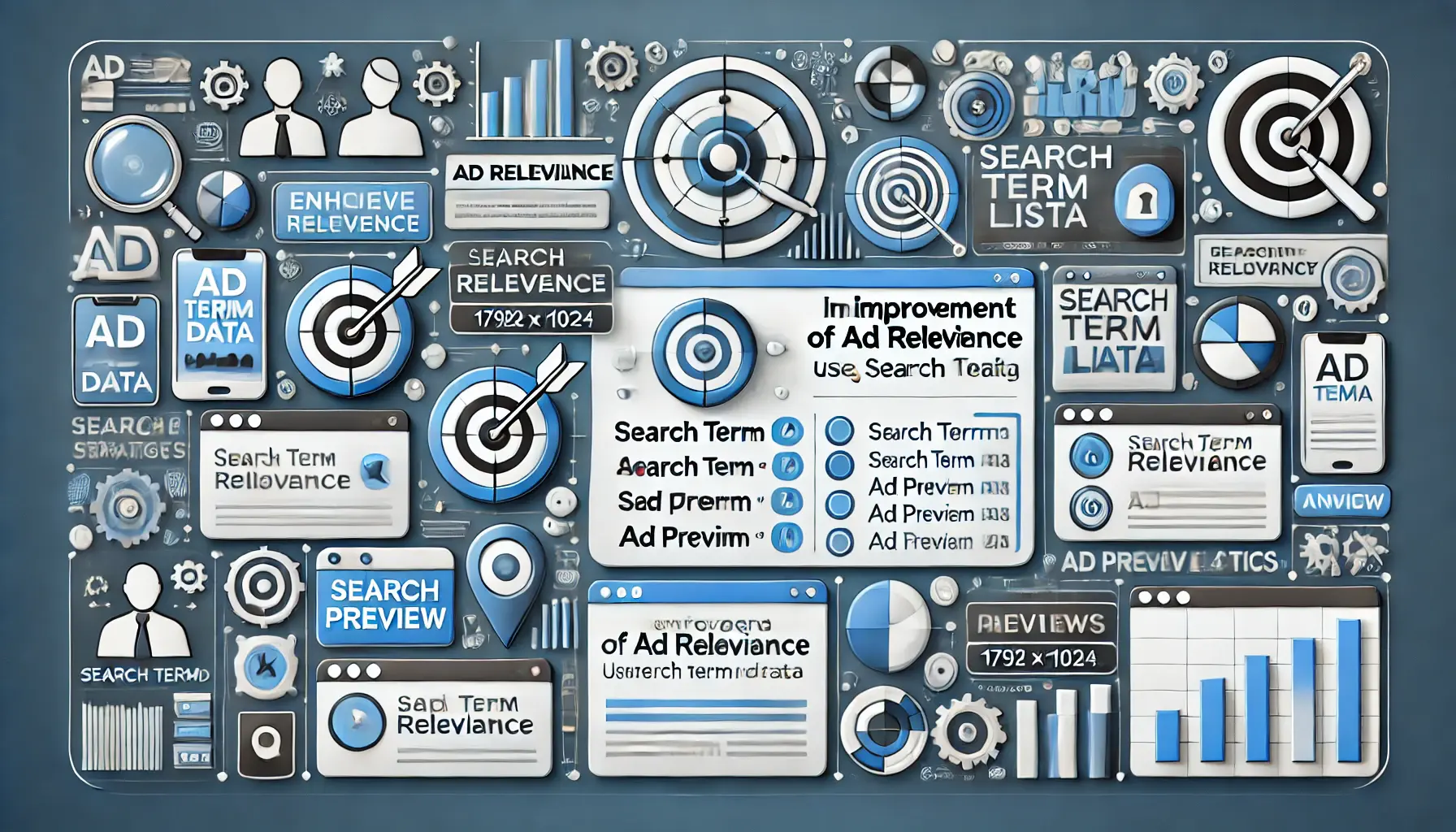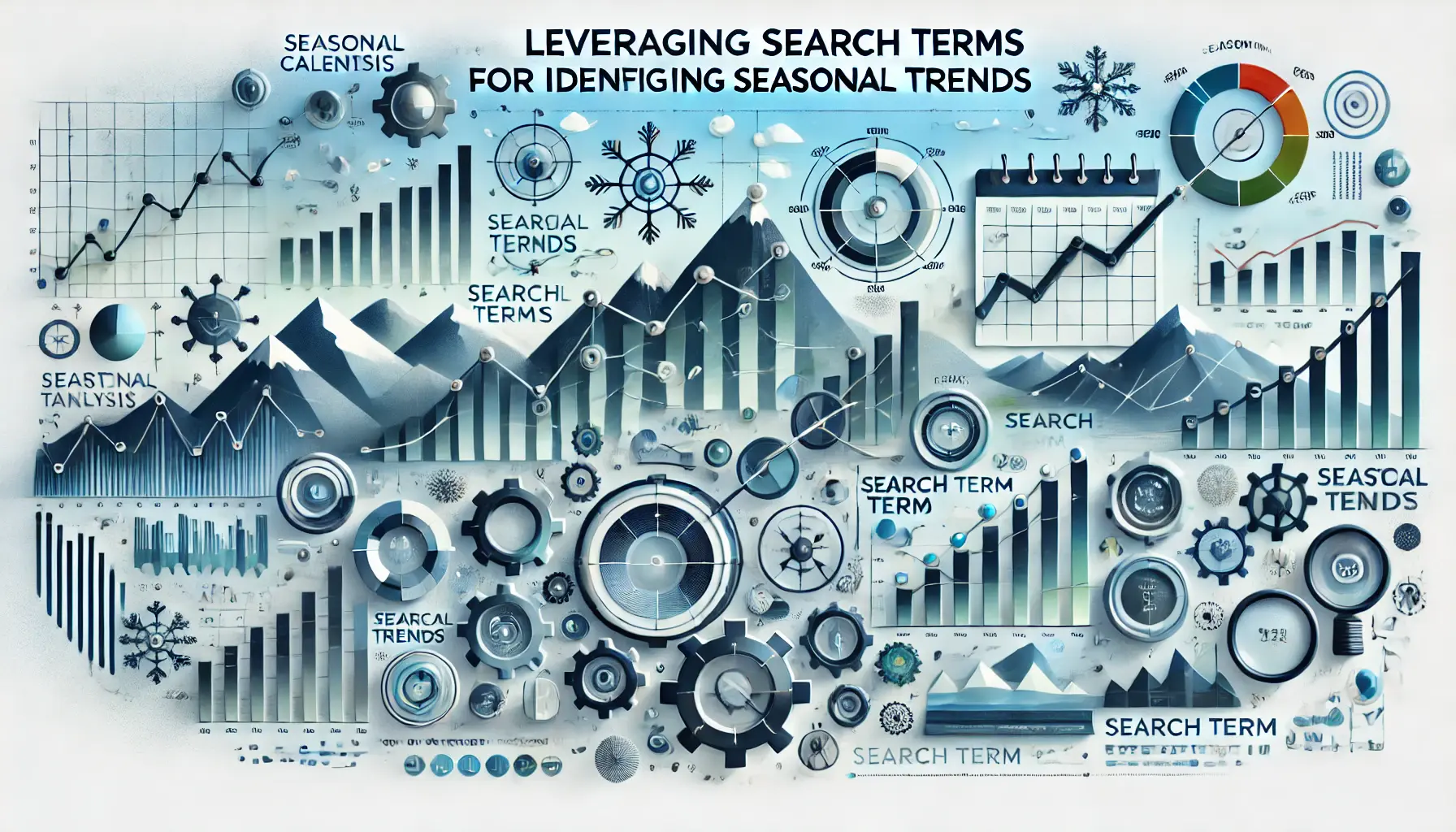To perform optimization effectively in today’s digital advertising, it’s important to understand exactly how users are interacting with your ads.
One of the most effective ways to achieve this is through Search Term Analysis in Google Ads.
By understanding the exact phrases and terms users use to click through, you gain valuable insights into the intent behind that click, enabling you to refine your approach to capture more traffic and increase your return on investmentThe ratio of net profit to the cost of investment, indicating profitability..
In this article, we will cover every detail you need to know about Search Term Analysis in Google Ads.
You’ll learn everything from what it is and why it’s important, to how to conduct effective analysis and use those insights to optimize your campaigns for even better results.
Let’s start by defining what search term analysis is and why it’s a must-have for every digital marketer.
- Understanding Search Term Analysis in Google Ads
- How to Effectively Analyze Search Terms
- Optimizing Campaigns Using Search Term Insights
- Advanced Techniques for Search Term Analysis
- Measuring Success with Search Term Analysis
- Conclusion – How to Max Out Campaigns Using Search Term Analysis
- Commonly Asked Questions About Search Term Analysis
Understanding Search Term Analysis in Google Ads
Before diving into the mechanics of Search Term Analysis, it’s essential to understand the basics of what it entails and why it’s so valuable.
Search term analysis is the process of examining the specific search queries users enter before clicking on your ads.
Unlike keywords, which you set in Google Ads, search terms represent the actual phrases users input into the search engine.
By analyzing these terms, you can better understand user intent and behavior, which can inform everything from targeting to messaging.

Image illustrating the importance of search term analysis for optimizing digital advertising campaigns
Importance of Search Term Analysis for Campaigns
Search term analysis is crucial for any ad campaign as it bridges the gap between keyword strategy and user behavior.
Knowing exactly which terms triggered your ads allows you to make informed adjustments that can enhance ad relevance, click-through rates, and overall campaign performance.
This deeper level of understanding helps optimize your return on ad spendRevenue generated for every dollar spent on ads, indicating profitability. (ROAS) by aligning your keywords and messaging with what users are actually searching for.

Image illustrating the distinction between keywords and search terms in digital advertising
Difference Between Keywords and Search Terms
It’s common to use ‘keywords’ and ‘search terms’ interchangeably, but there is a difference between the two.
Keywords are the words you select in Google Ads to determine when your ads are eligible to show.
Search terms, on the other hand, are the exact phrases users type.
Understanding this distinction is essential for effective search term analysis, as it reveals how well your chosen keywords align with actual user searches.

Image illustrating the tracking and reporting of search terms in Google Ads
How Google Ads Tracks and Reports Search Terms
Google Ads automatically tracks search terms when your ads receive clicks and provides a Search Terms Report where you can review this data.
This report shows which search terms are driving traffic, how many clicks each term generates, and other performance metrics.
The insights gathered from this report help you determine which terms are worth targeting more aggressively and which may need to be excluded as negative keywordsKeywords that prevent ads from showing for specific search terms..
Search term analysis offers unique insights that go beyond basic keyword research, revealing user intent and enhancing targeting precision.

Image illustrating the process of analyzing search terms in digital marketing
How to Effectively Analyze Search Terms
For effectively carrying out Search Term Analysis in Google Ads, a well-structured approach is necessary to draw meaningful insights.
By filtering, segmenting, and studying search terms that drive performance, you can use the available tools and data within Google Ads to optimize your campaigns effectively.
Below, we walk through the major steps involved in performing an effective search term analysis.

Image illustrating the process of accessing search terms data in Google Ads
How to Access Search Terms Data in Google Ads
To begin, access the Search Terms Report in your Google Ads account.
This report, available under the ‘Keywords’ tab, lists all actual search queries that have triggered your ads.
It’s an invaluable tool to understand user behavior and refine ad targeting with real-world data.
To analyze search terms:
- Go to the ‘Keywords’ tab in Google Ads.
- Click on ‘Search Terms’ to view the queries that matched your ads.
- Filter by a specific date range, whether you want recent data or historical trends.
By regularly reviewing this report, you can stay updated on what users are searching for, allowing you to rapidly adjust keywords and bids to capture top-performing terms.

Image illustrating the filtering and segmenting of search terms in digital marketing
Filtering and Segmenting Search Terms
Filtering and segmenting search terms allows you to view data that aligns most closely with your campaign goals.
Google Ads provides filters for performance metrics such as clicks, conversions, and cost.
Segmenting by device, audience, or location provides further insights into user intent and behavior.
This granularity aids in identifying terms that bring valuable traffic, enabling you to make data-driven adjustments.
Common filters to apply include:
- Conversions: Focus on terms that generate conversions to identify profitable queries.
- Clicks: Examine terms with high click-through rates to identify phrases that spark user interest.
- Cost: Identify high-cost terms to determine if adjustments to your budget or bid strategy are necessary.

Image illustrating the evaluation of search term performance using metrics in digital marketing
Using Metrics to Evaluate Search Term Performance
Performance metrics play a key role in identifying which search terms add value to your campaign.
Focusing on metrics such as click-through rateThe percentage of people who clicked on an ad after seeing it. (CTR), conversion rateThe percentage of ad clicks that result in a desired action, like a purchase., and cost per conversion helps determine valuable search terms.
For instance, a high CTR combined with a low conversion rate might indicate that your ad copy or landing page needs refinement to align better with user expectations.

Image illustrating the identification of high-impact search terms in digital marketing
Identifying High-Impact Search Terms
Certain search terms consistently deliver quality traffic and conversions.
Identifying these high-impact terms allows you to consider higher bids or expanded keyword matching options.
By focusing on these terms, you can improve campaign efficiency and allocate more of your budget to queries that drive the best results.
Additionally, using high-impact terms to create new ad groups or refine ad copy can greatly enhance overall campaign performance.
A structured approach to search term analysis enhances insight accuracy and campaign optimization.

Image illustrating the optimization of campaigns based on search term insights in digital marketing
Optimizing Campaigns Using Search Term Insights
Once you have gathered and analyzed your data from Search Term Analysis, it’s time to apply these insights to optimize your Google Ads campaigns.
Using search term insights allows you to refine targeting, adjust bids, and enhance ad relevance—all effective strategies for achieving better performance and increasing conversions.
Below are several effective ways to leverage search term insights in your campaigns.

Image illustrating the process of adding negative keywords for improved targeting in digital marketing
Adding Negative Keywords for Better Targeting
One of the quickest ways to optimize ad performance is by adding negative keywords based on search terms that are irrelevant or unprofitable.
Negative keywords prevent your ads from showing in searches that aren’t aligned with your objectives.
For example, if you’re advertising premium products, terms like ‘free’ or ‘cheap’ may not align with your goals.
By filtering out these terms, you can ensure that your budget is spent on valuable clicks.

Image illustrating the process of adjusting bids according to search term performance in digital marketing
Adjusting Bids Based on Search Term Performance
For search terms with a higher conversion rate, it may be worthwhile to increase bids to capture more of that traffic.
Conversely, underperforming terms should have their bids reduced or even paused.
This approach helps optimize your budget by focusing on search terms that yield the best return on ad spend (ROAS), aligning your bids with actual search term performance.

Image illustrating the enhancement of ad relevance through search term data in digital marketing
Improving Ad Relevance Using Search Term Data
Search term data also plays a key role in improving ad relevance.
By identifying which terms are most relevant to your audience, you can tailor ad copy to reflect the language and intent of those searches.
When users see ads that closely match their queries, they are more likely to click, increasing your click-through rate (CTR) and boosting quality scoresA metric in Google Ads indicating the relevance of ads, keywords, and landing pages..

Image illustrating the process of using search terms to find new keywords in digital marketing
Using Search Terms to Discover New Keywords
Search term analysis often reveals new keywords that you may not have initially targeted but that are generating interest and clicks.
Adding these terms as new keywords can help you expand your reach and potentially tap into new customer segments.
Regularly reviewing search terms keeps you aware of trends and helps adjust your campaign positioning to align with evolving user behavior.
Utilize insights from search term analysis to refine targeting, adjust bids, and align ad relevance with user intent.

Image illustrating advanced techniques for search term analysis in digital marketing
Advanced Techniques for Search Term Analysis
With the availability of more advanced techniques, marketers can achieve even deeper insights and improvements in campaign performance.
Moving beyond basic Search Term Analysis allows you to leverage automation, integrate audience data, and track seasonal trends, all of which reveal meaningful patterns in user behavior and inform your campaign strategies.
Let’s explore some advanced methods for maximizing search term insights.

Image illustrating the application of automation to gain insights from search terms in digital marketing
Using Automation to Gain Search Term Insights
Automation within Google Ads streamlines your search term analysis and optimization processes.
You can set up automated rulesPredefined actions set up in Google Ads to manage campaign operations automatically. and scriptsCustom JavaScript code in Google Ads to automate tasks across multiple campaigns. to automatically flag high- or low-performing search terms for inclusion or exclusion in campaigns.
For example, scripts can increase bids on terms that show high conversion rates or pause terms with consistently poor performance.
Automation not only saves time but also ensures that your campaigns respond swiftly to shifts in user behavior.

Image illustrating the integration of search terms and audience data in digital marketing
Integrating Search Terms with Audience Data
Analyzing search terms alongside demographic, geographic, and behavioral data provides a clearer picture of who is engaging with your ads and why.
For instance, if specific search terms resonate more with certain age groups or locations, you can create ad groups tailored to these segments.
This integration enhances your ability to deliver personalized ads that resonate with your target audience.

Image illustrating the use of search terms to identify seasonal trends in digital marketing
Leveraging Search Terms for Seasonal Trends
Search term analysis is particularly valuable for identifying seasonal trends and adjusting your campaigns accordingly.
By reviewing search terms over different time periods, you can spot recurring patterns related to holidays, events, or specific times of the year.
For example, e-commerce advertisers may observe a spike in search terms like ‘gifts’ or ‘discounts’ during the holiday season.
With these insights, you can adjust bids, ad copy, and budget allocation to make the most of peak times in your industry.

Image illustrating the prediction of trends using search term analysis in digital marketing
Predicting Trends with Search Term Analysis
Beyond seasonal trends, search term analysis can help identify broader shifts in consumer behavior.
By consistently monitoring search terms, you can promptly detect emerging trends or interests, signaling future demand for products or services.
For example, a rising search volume for specific product-related keywords may indicate an opportunity to launch a new ad campaign.
This proactive approach enables you to stay ahead of competitors and meet customer needs as they evolve.
Advanced analysis, including automation and seasonal trend tracking, reveals valuable patterns for campaign strategy.

Image illustrating the measurement of success using search term analysis in digital marketing
Measuring Success with Search Term Analysis
Once you set up Search Term Analysis as part of your optimization process in Google Ads, it’s important to measure its success and understand how well these insights drive results.
Monitoring the right metrics reveals what is working, what may need adjustments, and how to maximize your return on investment.
Below, we outline key performance indicators (KPIs) and methodologies for monitoring the success of your search term optimization efforts.

Image illustrating the monitoring of key performance indicators in digital marketing
Monitoring Key Performance Indicators (KPIs)
The process of measuring the effectiveness of search term analysis begins by tracking essential KPIs.
The most important KPIs to track include:
- Click-Through Rate (CTR): A strong indicator of ad relevance associated with certain search terms and user interest.
- Conversion Rate: Shows the rate at which clicks from specific search terms lead to conversions, providing a direct measure of ad effectiveness.
- Cost Per Conversion: Measures the dollar amount required for each conversion from search terms, helping you understand the efficiency of your spending.
- Return on Ad Spend (ROAS): Compares revenue generated to ad spend, offering a clear view of profitability at the campaign level.
By tracking these KPIs, you gain insight into which search terms are truly contributing to your campaign’s success.

Image illustrating the monitoring of changes in click-through and conversion rates in digital marketing
Monitoring Changes in Click-Through and Conversion Rates
Regularly reviewing changes in CTR and conversion rates can help gauge the effectiveness of your search term optimization efforts.
Increased CTR may indicate that your adjustments to ad copy and keyword targeting are better aligned with your target audience, while an improved conversion rate suggests that clicks are translating into meaningful actions.
If certain search terms continue to drive low engagement, consider refining or excluding them from your campaigns.

Image illustrating the evaluation of the impact on Return on Ad Spend (ROAS) in digital marketing
Evaluating the Impact on Return on Ad Spend (ROAS)
Monitoring the impact of return on ad spend (ROAS) from search term optimization is crucial for understanding your campaign’s financial performance.
A positive ROAS often indicates optimal budget allocation, with spending focused on high-converting search terms.
By evaluating ROAS, you can make informed decisions on where to allocate additional budget and adjust bids to capture more revenue-generating traffic.

Image illustrating ongoing strategies for search term optimization in digital marketing
Ongoing Strategies for Search Term Optimization
Effective search term analysis is an ongoing process.
Regularly updating your search term analysis and optimizing keywords, negative keywords, and bids based on performance data keeps your campaigns aligned with evolving user behavior.
Establishing a routine for strategy review and adjustments helps ensure that your ads remain relevant and competitive in a dynamic market.
Tracking CTR, conversion rate, and ROAS informs the effectiveness of search term-based optimizations.

Image illustrating the conclusion on maximizing campaigns using search term analysis in digital marketing
Conclusion – How to Max Out Campaigns Using Search Term Analysis
The key to maximizing the performance of your campaigns lies in how effectively you utilize Search Term Analysis in Google Ads.
By understanding the exact terms users type in Google, you gain valuable insights into user intent, allowing you to drive better results through strategic adjustments.
Throughout this article, we covered each step of efficient search term analysis, from basic data collection to advanced optimization techniques.

Image illustrating the key takeaways from search term analysis in digital marketing
Key Takeaways from Search Term Analysis
Summarizing the main principles of effective search term analysis, here are the crucial steps to remember:
- Data Collection: Start with Google Ads’ Search Terms Report to see the actual terms that trigger your ads, offering insight into user behavior.
- Filtering and Segmenting: Use filters to focus on relevant metrics, such as conversions and cost per conversion, and segment further by device or demographic for deeper insights.
- Optimization Techniques: Unlock value by using search term insights to add negative keywords, adjust bids according to performance, and create focused ad copy.
- Advanced Strategies: Utilize automation to simplify analysis, integrate search terms with audience data, and track seasonal trends to position campaigns effectively during peak times.
- Measuring Success: Regularly track KPIs like CTR, conversion rate, and ROAS to evaluate the impact of your search term optimization.

Image illustrating the ongoing value of search term analysis in digital marketing
The Continuous Value of Search Term Analysis
In digital advertising, user behavior and trends are constantly evolving.
Effective search term analysis is an ongoing process that requires consistent updates and revisions.
By staying informed on user search habits, marketers can predict shifts in audience needs and proactively adjust their strategies, keeping campaigns relevant and responsive to changing user interests.
Incorporating search term analysis into your regular campaign routine fosters continuous improvement, maximizing the impact of your advertising budget for meaningful results.
By refining your analysis techniques and integrating advanced strategies, your Google Ads campaigns benefit from increased relevance, higher engagement, and improved ROI.
Embedding these insights into your advertising strategy enables you to reach more precise audiences, create messaging that resonates, and ultimately build campaigns that drive not only clicks but also conversions.
With a solid understanding of search term analysis, marketers can unlock the full potential of Google Ads, positioning their campaigns to outperform competitors and achieve consistent business objectives.
Embrace these techniques and leverage search term analysis to elevate your digital advertising performance and maintain a competitive edge in the market.
Maximize campaign performance by consistently refining search term analysis and leveraging user insights for strategic adjustments.

Image illustrating commonly asked questions regarding search term analysis in digital marketing
Your campaigns can be managed by an agency specialized in Google Ads, check out our service page.
Commonly Asked Questions About Search Term Analysis
In this section, we discuss some of the commonly asked questions regarding Search Term Analysis and its usage in running Google Ads.
These answers will further help you in optimizing your advertising efforts.
Search Term Analysis enables marketers to pinpoint precisely what users actually type in when searching, offering insights into user intent.
This allows marketers to streamline targeting, ad copy, and bids for optimized campaign performance.
While keyword analysis monitors selected terms, search term analysis examines actual user queries, providing more precise information about audience behavior and intent.
Adding negative keywords based on search terms filters out irrelevant queries, ensuring that your budget is used only on clicks with a high potential for conversions.
Regularly reviewing your Search Terms Report—at least once per week—keeps campaigns aligned with current user interests and enables timely adjustments to keywords and bids.
Key KPIs include click-through rate (CTR), conversion rate, cost per conversion, and return on ad spend (ROAS), as these metrics clearly measure campaign effectiveness.
Automation simplifies the process by using scripts and automated rules to adjust bids, add or exclude terms, saving time while improving campaign responsiveness.
Audience data adds depth by revealing demographic and behavioral patterns associated with search terms, allowing for more personalized ad targeting and improved relevance.
Search term analysis identifies seasonal trends, enabling you to adjust bids, ad copy, and budget allocations during peak periods for maximum results.
Tracking ROAS shows the revenue generated per dollar spent on ads, helping you allocate budget toward high-converting search terms for improved profitability.











